What is a data plan?
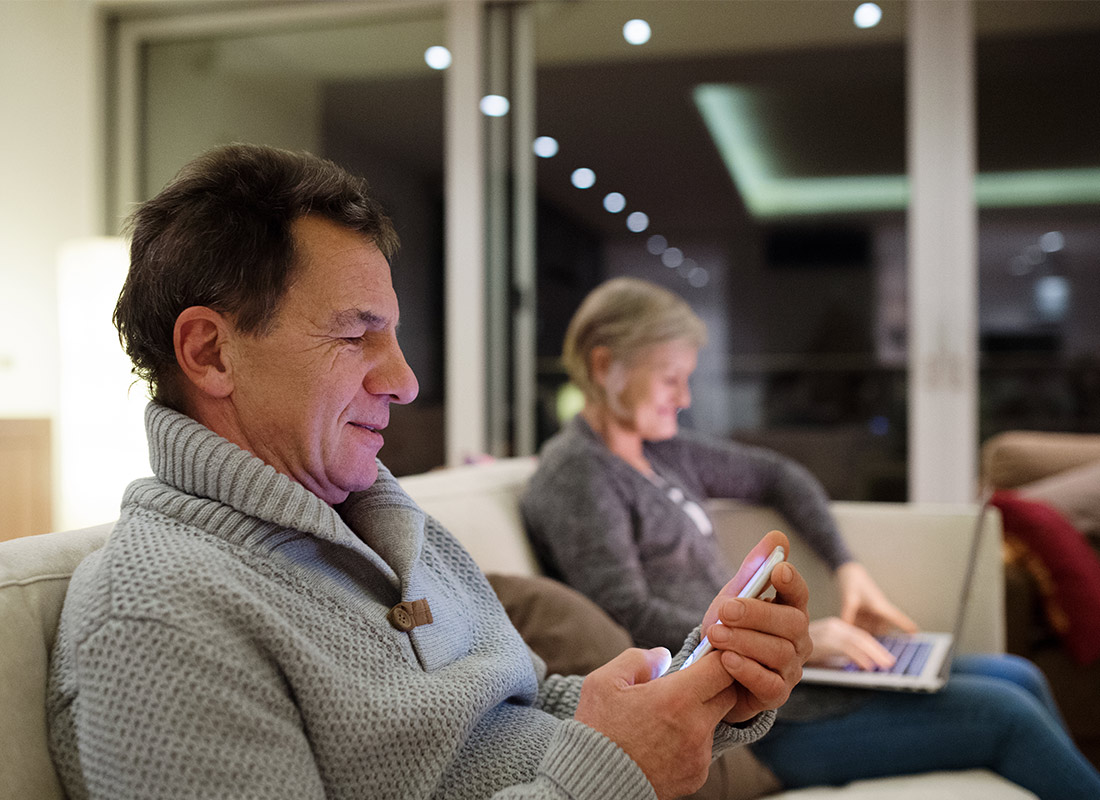
What's coming up?
In this activity, you'll learn what a data plan is, how it works, and how you pay for it.
Start activityYou always use data
Whenever you use the internet with your mobile phone, tablet, computer or other device, you use at least some amount of data.

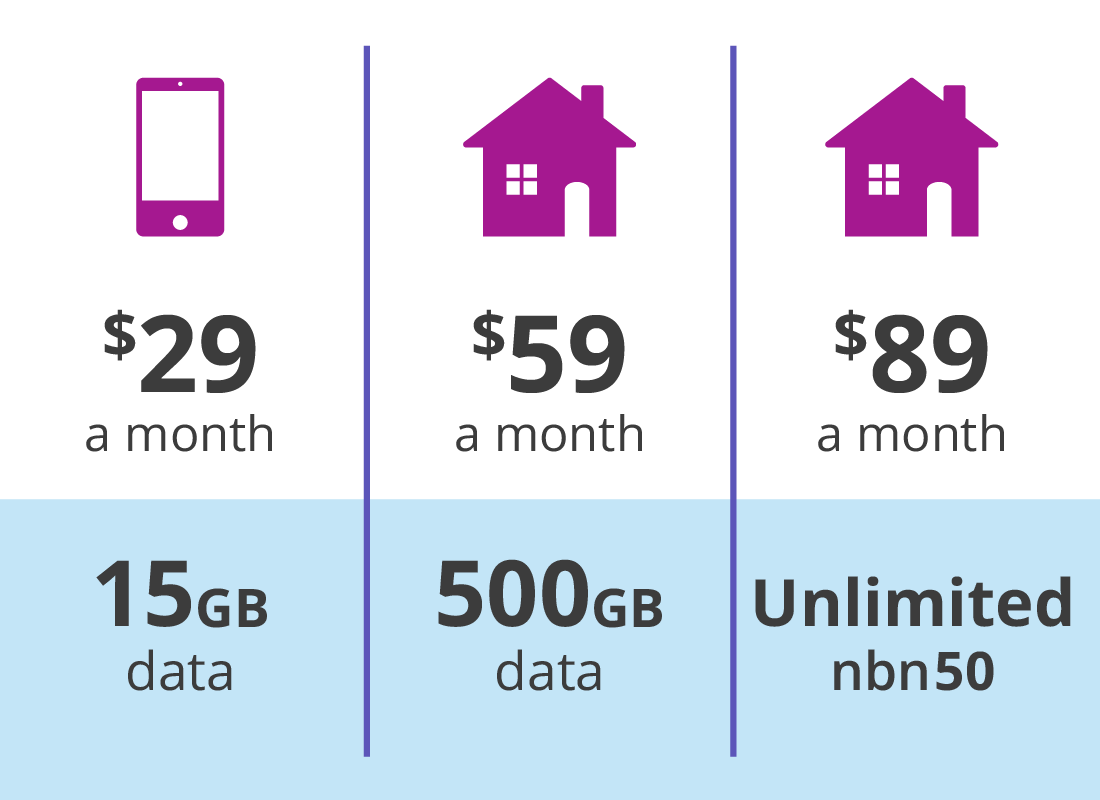
How is data measured?
We measure water in litres, and we measure power in watts. The term we use to measure data is gigabytes. The word gigabytes is often abbreviated to GB when writing, to make it easier. We pronounce gigabytes like this:
Gig – ah – bites.
How data is sold
Internet providers offer monthly plans, at a set cost. There are two kinds. The monthly fee for many home internet plans and nearly all mobile phone plans includes a certain amount of data. Home data plans provide a lot more data for less cost than mobile data plans.
Many nbn™ home internet plans offer unlimited data. Instead of charging based on data, they charge based on connection speed. Higher speeds cost more.

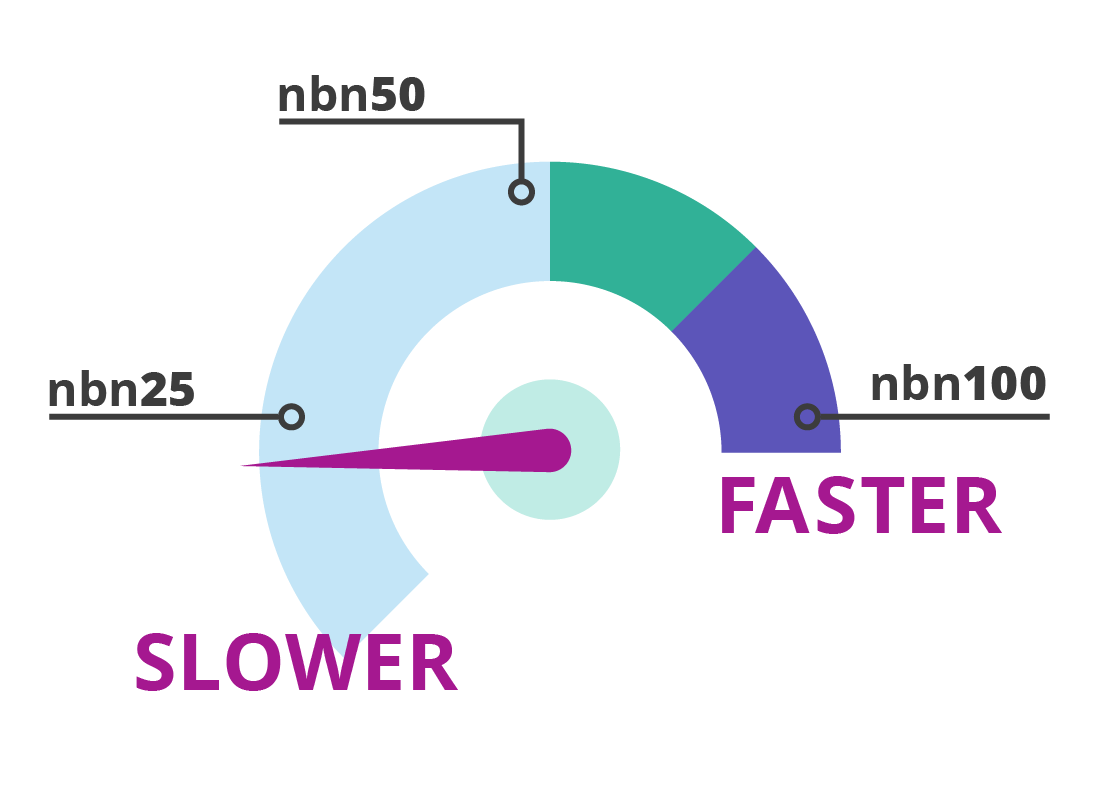
nbn™ home data plans
The cost of many nbn home internet plans is based on the speed of the connection, rather than the amount of data. Most nbn plans provide a choice of three speeds and are named something like Starter, Standard and Premium, or nbn25, nbn50 and nbn100. The faster the speed, the more the plan costs.
Most nbn plans won’t, however, provide their fastest speed all the time. Instead, speed will depend on how busy the internet is in your area at the time you’re using it.
What nbn speed do you need?
Match your nbn plan to your internet habits, and remember, you can upgrade if you find you plan isn’t fast enough.
Starter or nbn25 plan: for light internet use, where two to three people browse the web, play music or internet radio, and watch a movie or two.
Standard or nbn50 plan: for medium-use households, where three to four people browse the web and watch movies.
Premium or nbn100 plan: for heavy-use households where four or more people watch movies, play games and download large files at the same time.
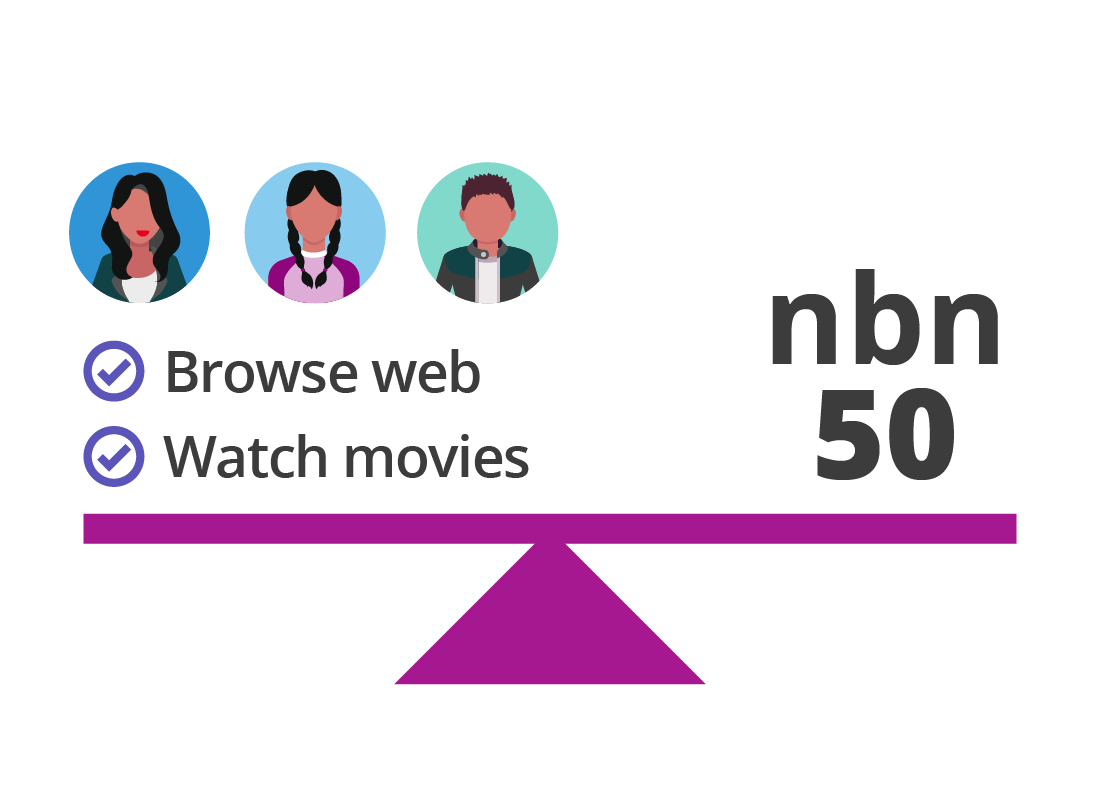
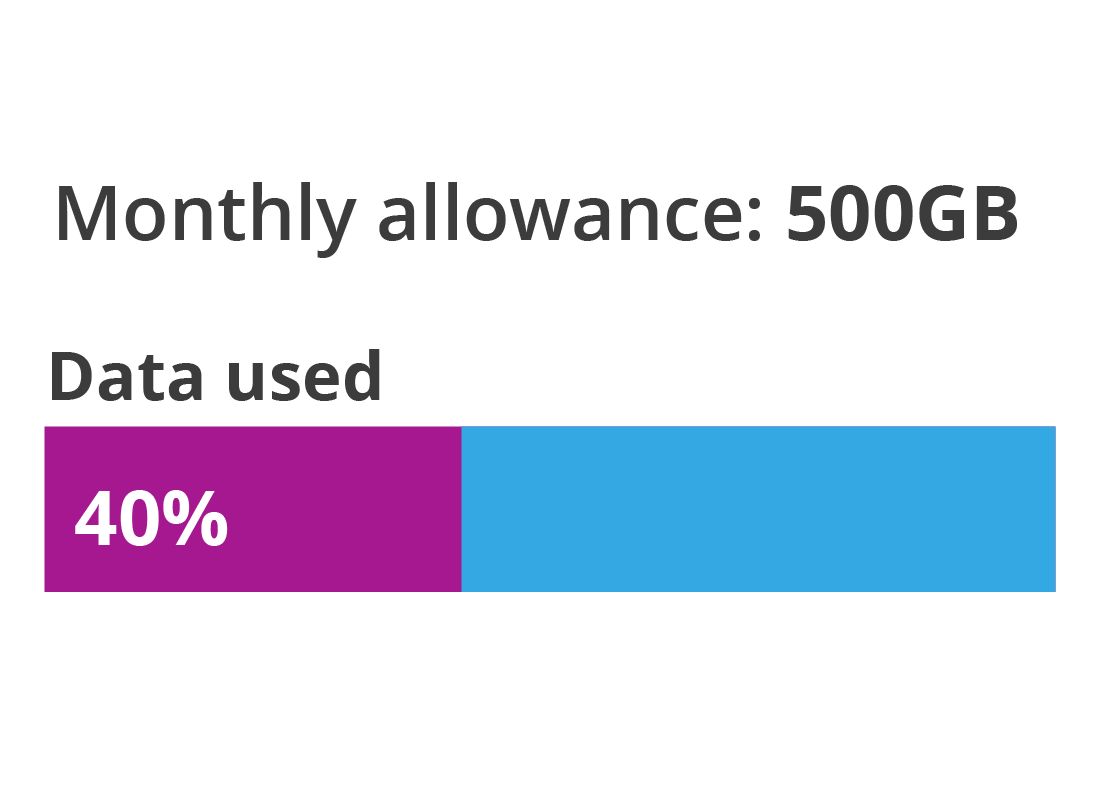
Using less data
If your monthly home data allowance is 500 GB, but only use 200 GB for the month, the remaining data is forfeited. You still have to pay the full amount of your internet plan, even if you don't use much data.
This is the same for most mobile data plans – you still pay the full amount and you lose any data you didn't use. The next month, you start with a fresh amount of data to use.
Some mobile plans let you roll over, or bank, unused data to the next month, up to a limit. Others have no limit on rollover data, or when you have to use it.
Using too much data
If your monthly home data allowance is 200 GB, and you use up the full 200 GB before the end of your billing month, you will run out of data.
If this happens, some internet providers will charge you extra for the data you use on top of your allowance. Some other internet providers will slow down your internet for the rest of the month, so you can't keep using up so much data.
You can choose to top up your data and pay for extra. Talk to your internet provider about this.
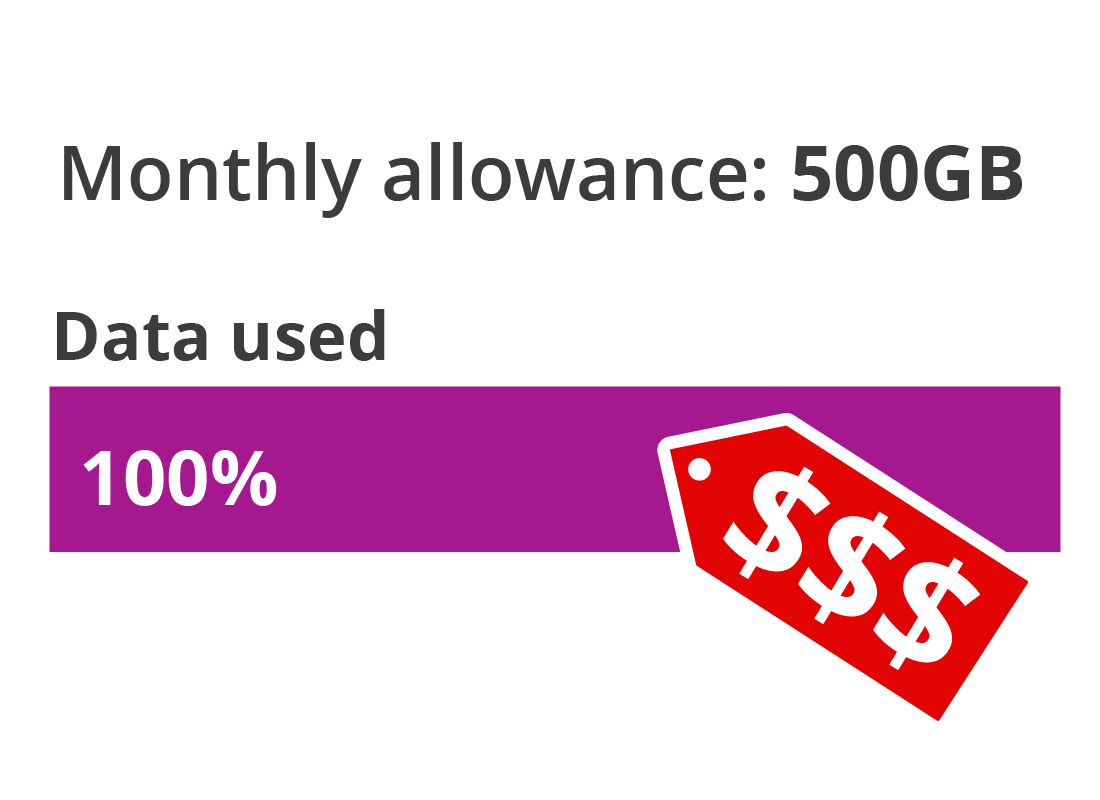
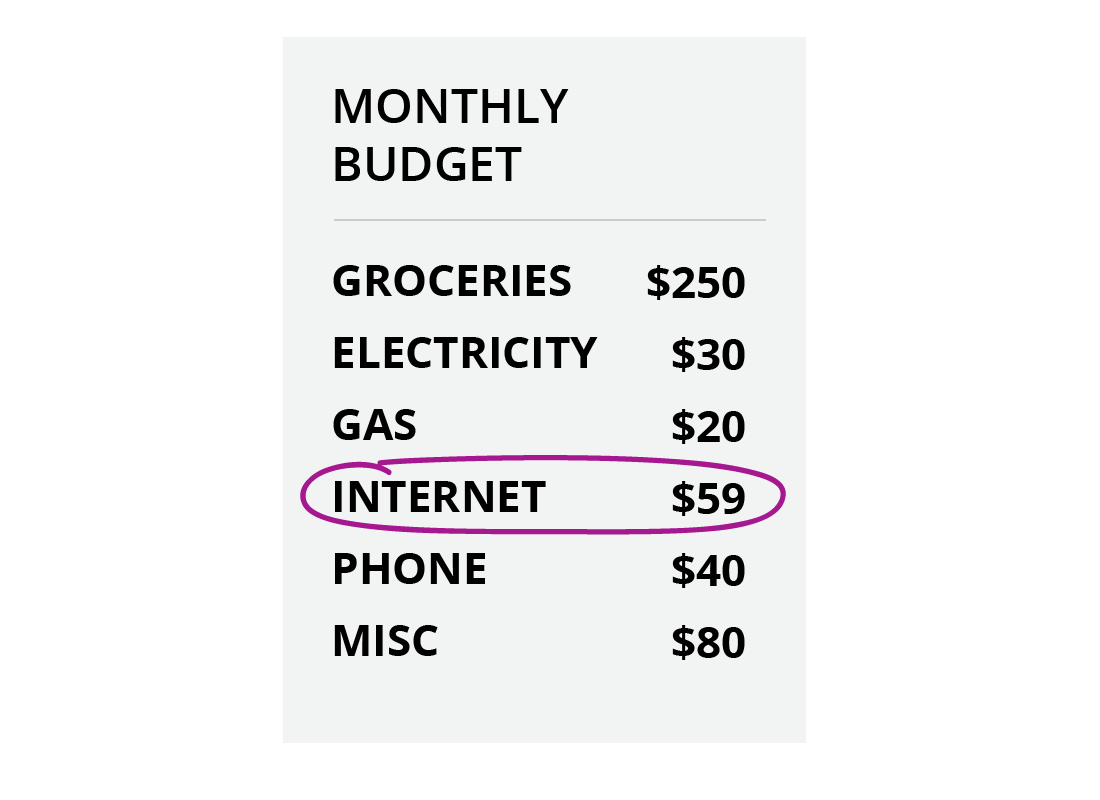
Controlling your bill - home internet
A home data plan doesn’t cost less if you use less than your allowance, but it may cost more if you use extra data. Still, a data plan can be a good way to help control the cost of your internet.
Unlike electricity or gas, your internet bill should be the same every month, which lets you plan ahead.
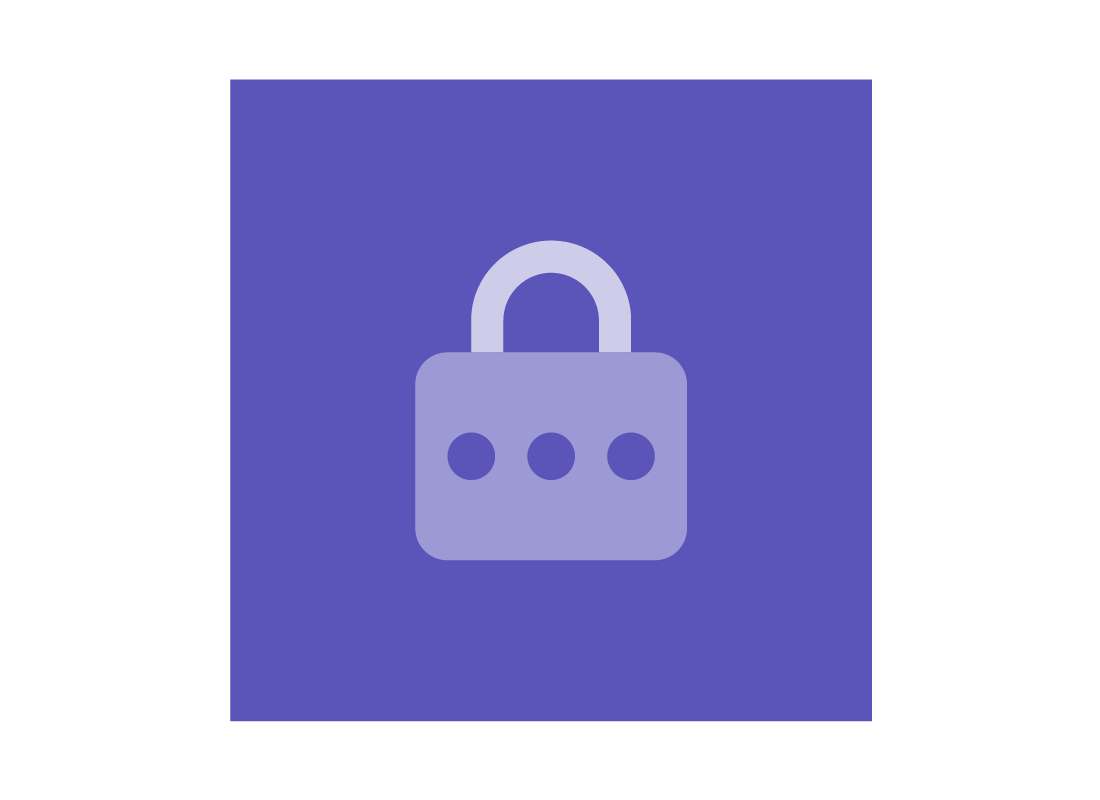
eSafety tip
Keep an eye on how much data you use on your mobile and home plans. You can do this through an app (short for application, which is a small computer program for mobile devices) from your provider. Ask them to help you download the app and use it in order to check your data usage.
Controlling your bill – mobile data
If you exceed your data allowance during a month, some mobile internet providers will automatically give you more data, but will charge you for this. Again, talk to your mobile internet provider about making sure this doesn't happen. An increasing number of mobile data plans instead slow down your data speed when you’ve exceeded your monthly limit.
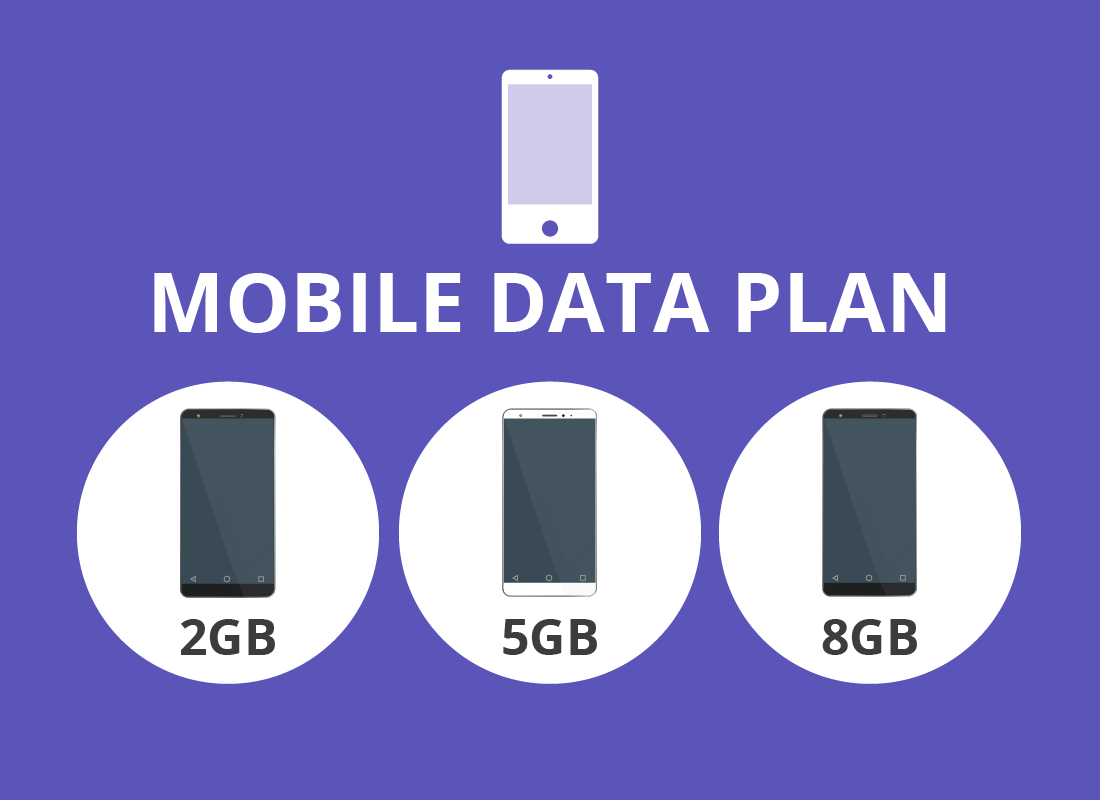
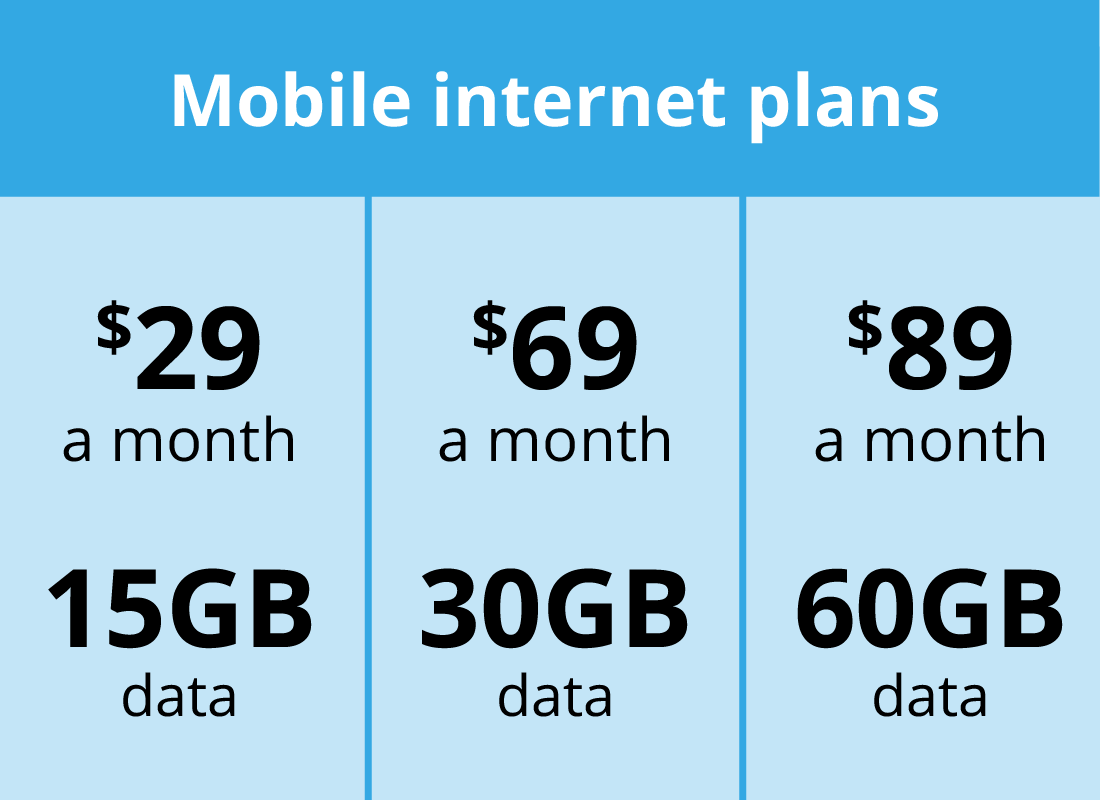
Home and mobile data plans
A mobile data plan is similar to a home data plan in that you get a set amount of data a month, and you are charged extra if you use more data, but not less if you use less.
A mobile data plan, however, provides far less data for more cost. A large mobile data plan, for example, might provide 60 GB for $89, but some home data plans provide unlimited data for the same cost.
Well done!
You have completed the What is a data plan? activity. You've learned that internet providers set the cost of a home or mobile internet plan based on how much data is included or the speed of the data supplied.
Using less than the allowed amount is fine. But if you use more data than allowed, you might have to pay a surcharge, or have slow internet for a little while.
Up next, you'll learn about internet contracts, in the Getting a data plan activity.
